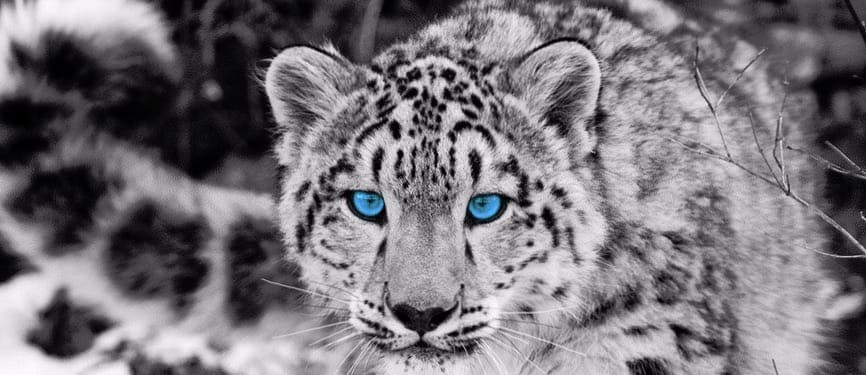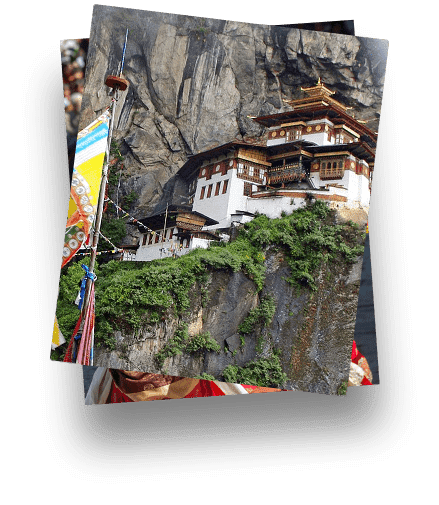You can contact us by e-mail or phone
from uk
01405 862917
outside uk
+44 1405 862917
01405 862917
+44 1405 862917
Country Facts
Bhutan

Country Facts
Bhutan
Essential Information
Bhutan - Country Facts & General Info
The magical Kingdom of Bhutan is renowned for being the country where Gross National Happiness is valued more than Gross National Product. It's also one of the most pristine and culturally intact countries in the world. Bhutan also places great emphasis on environmental issues and may well be a Carbon Negative country. Depending on how you value the stuff of life, Bhutan may well be the most 'perfect' country in the world and a model for us all. There's free health care for all Bhutanese citizens (partly funded by tourism), and as the Bhutanese take great pride in their beautiful country, it's very clean too. Litter is almost nonexistent.
Bhutan didn't get its first road until the 1960s, and even now there are very few roads, other than the main East/West Highway. But the odd one or two extras are now pushing into previously isolated valley systems. Outside of the larger urban areas of Thimpu and Paro, there is still very little traffic on the roads of Bhutan.
Television, mobile phones, and the Internet were only introduced in the late 1990's. To a greater extent, Bhutan has successfully remained isolated from the outside world for many centuries. It is a land of supernatural legends and ancient monastery fortresses, and even today, the Bhutanese people live their lives according to time-honoured cultural traditions and deeply held Buddhist beliefs. It all sounds too good to be true.....a veritable Shangri-La. Certainly, the Bhutanese have a very different outlook on what western society may consider "progress". Compared to western countries, Bhutan remains a very basic, simple country, and to some extent Bhutan wishes to keep it that way, "cherry picking" if you like certain aspects from the west, whilst endeavouring not to make the same mistakes as more developed nations have a habit of doing.
It's well known that in respect of tourism, Bhutan is a rather costly place to visit and, if considered in purely economic terms, is poor value for money when compared to Nepal. Bhutan imposes a SUSTAINABLE DEVELOPMENT FEE in addition to all the usual holiday costs, e.g. accommodation, meals, guide, transport, etc. This means that Bhutan remains an exclusive destination. That means it is not despoiled by tourism, changed by tourism, or overrun with tourists. In the instance of Bhutan, the exclusivity is the opportunity to experience a country that has held onto its values and traditions and is not going to change just to suit tourists. So, you are paying for that privilege. If you don't think that's a privilege, then a visit to Bhutan may well be something to reconsider. All that said, Bhutan readily welcomes tourists. It just wants the right sort of tourists, not the ones who need McDonalds every 5 minutes and actually just want everything to be like their own country.
If you're the right sort of tourist who can respect Bhutanese values, traditions, and culture as well as the environment (and don't mind paying a little more for that), then Bhutan may well be your Shangri-La. "High Value, Low Impact" is the tourism mantra in Bhutan.
This short, but very inspiring video from the Prime Minister of Bhutan goes a long way in understanding the Bhutanese approach
But anyone travelling to Bhutan also needs to take off the 'rose tinted sunglasses' and take a reality check. The fact is that it remains one of the poorest countries (economically) in the world, and there is no escaping that. Unless you blindfold yourself when stepping off the plane at Paro Airport and steadfastly remain inside a luxury hotel,, you will experience and witness the fact that the people on the whole are very poor, but usually happy as Bhutanese are not materialistic. Begging from tourists is however virtually non-existent.
The infrastructure of the country is poor at best
'Health and safety, as you know it in Europe and North America, is virtually nonexistent in Bhutan.
Bhutan has very few paved roads. Travel by road is invariably a slow, uncomfortable affair, and even in private vehicles, the journeys can still be arduous and tiresome. Although our drivers are very experienced and understand the standards of driving tourists expect, the overall standards of driving here leave a lot to be desired.
Although Bhutan may well be a real Magic Kingdom, it's the opposite of the Disneyland version. Bhutan is real, warts and all.
Serious crime is a rarity in comparison to Europe and North America, though, and with tourism come some undesirable consequences. So, always keep your belongings safe, wherever you are.
You'll find that even in the most luxurious of hotels, plumbing is sometimes far from the standards you take for granted at home, and instances of no hot water in accommodations can frequently arise. Many standard hotels will have unheated rooms.
Drugs (including marijuana) are illegal in Bhutan, and possession/use can lead to imprisonment.
Bhutan is prone to earthquakes, although these are usually relatively minor affairs. The Himalaya is still growing as a result of the Indian tectonic plate grinding and twisting its way underneath the Asian plate.
Oddly enough, you may find that even in some remote areas, there's a mobile signal. WiFi can often be found at some accommodations. But don't rely on this, and as you will find limited opportunities to keep your phone charged, we'd suggest you limit the use of your phone, unstaple it from your ear and see if you can break the habit :-)
Bhutan remains an adventurous travel destination with many risks, whatever style of holiday you choose. Clearly, for many, Bhutan is a real travel destination, which is one of its primary appeals. However, if the idea of visiting a poor country with poor infrastructure and a lack of basic services isn't your idea of a good holiday, then we'd respectfully suggest you don't travel to Bhutan. Even in the perceived 'safety bubble' of a private holiday, what Bhutan is (and isn't) will be a de facto part of your overall travel experience.
Population
The population is around 700,000.
Capital City
The capital city is Thimpu, which is the largest urban area in the country, although the population is a mere 70,000 (approx.).
Ethnicity
Bhutanese people can be generally categorised into three main ethnic groups: The Tshanglas, Ngalops, and Lhotshampas. The other minority groups are the Bumthaps and the Khengpas of Central Bhutan; the Kurtoeps in Lhuentse; the Brokpas and the Bramis of Merak and Sakteng in eastern Bhutan; the Doyas of Samtse; and the Monpas of Rukha villages.
Religion
Vajrayana Buddhism is the dominant faith in Bhutan and the one you are most likely to encounter while on holiday there. Around 75% of Bhutanese people follow this faith. Minority religions like Hinduism do coexist in the southern regions.
Politics
Previously a Kingdom with an absolute monarchy, Bhutan now has a parliamentary democratic system.
Time Zone
6 hours ahead of Greenwich Mean Time.
Language
Dzongkha is the national language, although there are numerous dialects. Tshanglakha is the native language of eastern Bhutan, while Lhotshamkha is spoken by the southern Bhutanese. English is taught to children in school from a very young age, so you'll find that many Bhutanese in urban areas can speak a little English, less so in more remote locations.
Money
The Ngultrum (Nu) is the currency of Bhutan and is linked to the Indian Rupee, which is also accepted as legal tender. You won't be able to obtain Bhutanese currency prior to travel, but you can exchange (we recommend using cash ($US, £GBP, €EUR) at banks and hotels in the main towns). Credit cards are really only accepted at high-end tourist shops and in hotels. However, at the time of writing, there is now an ATM in Thimpu from which you may be able to withdraw cash, and it accepts Visa cards only. The availability of cash machines in Bhutan is likely to improve.
Electricity
Electricity in Bhutan is 230 Volts, alternating at 50 cycles per second. If you travel to Bhutan with a device that does not accept 230 Volts at 50 Hz, you will need a voltage converter. To find out what plug adaptors and converters you'll need, click here(links to external sites open in a new window).
Food & Drink
The Bhutanese love chillies. But for tourists, the use of chilli is toned down (unless you ask for local strength) Rice forms the main body of most Bhutanese meals. It is accompanied by one or two side dishes consisting of meat or vegetables. Pork, beef, and chicken are the meats that are eaten most often. Vegetables commonly eaten include Spinach, pumpkins, turnips, radishes, tomatoes, river weed, onions, and green beans. Grains such as rice, buckwheat, and barley are also cultivated in various regions of the country, depending on the local climate.
Ema Datshi: This is the National Dish of Bhutan. A spicy mix of chillies and the delicious local cheese known as Datshi. This dish is a staple of nearly every meal and can be found throughout the country. Variations on Ema Datshi include adding green beans, ferns, potatoes, mushrooms, or swapping the regular cheese for yak cheese.
If you require a special diet, then you should contact us before you book your Bhutan holiday, as it is entirely possible that it may not be able to be catered for, particularly in the mountains.
Bhutan Trivia
- Thimpu is the only capital in the world without traffic lights. It did have some for a while, but the locals complained as they prefered the white-gloved police to direct traffic.
- The highest unclimbed mountain in the world, Gangkar Puensum, is in Bhutan. As the government of Bhutan has banned peak climbing, this record is likely to remain.
- Less than 140,000 tourists visit Bhutan each year.
- Bhutan has no trains at the moment.
- Hydroelectricity is Bhutan's most valuable export commodity.
- Bhutan's National Sport is Archery.
- To the locals, Bhutan is Druk Yul—Land of the Thunder Dragon—because of the huge thunder storms that roll in across the Himalayas.
- If anyone is caught harming or killing the endangered black-necked crane, they could be sentenced to prison for life.
- Bhutan is the only country in the world where the sale of tobacco is prohibited.
- The first foreign tourists were allowed into Bhutan in 1974.
- Up until 1960, Bhutan had no roads, no electricity, no automobiles, and no postal system.
- 30% of the population in Bhutan is younger than 15!

Read our Bhutan Travel Guide

All rights reserved. Snow Cat Travel is a Registered Trade Mark UK 00003289264
